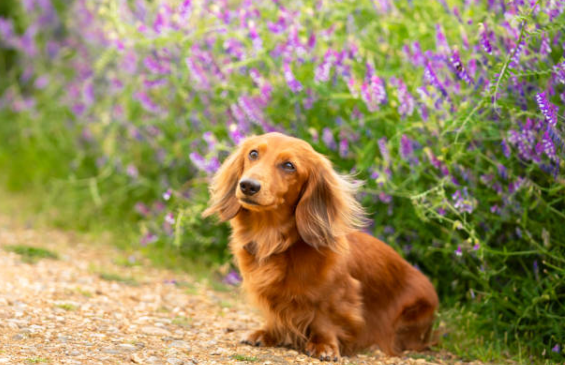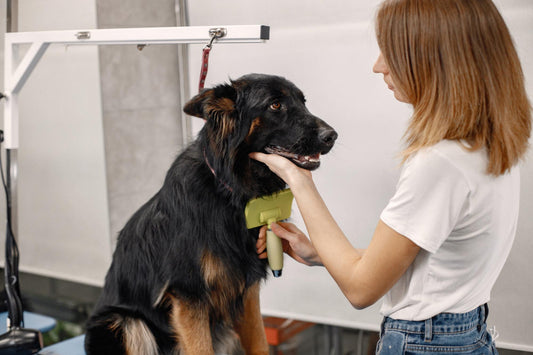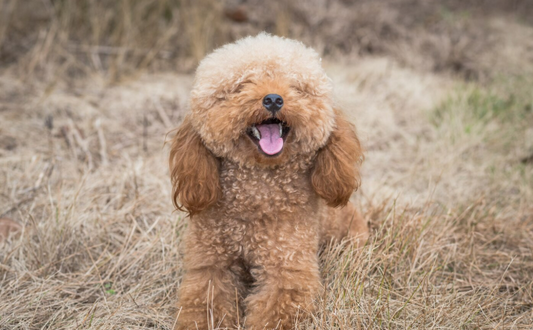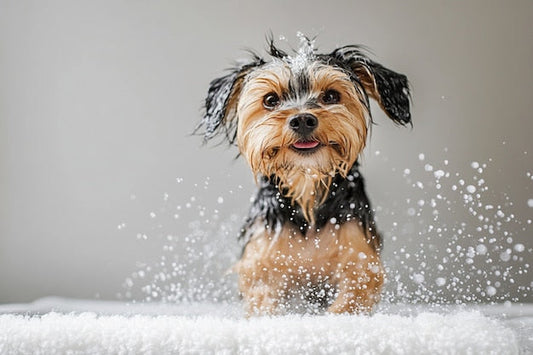Introduction
Dachshunds are a beloved breed known for their distinctive long bodies and short legs. Within this breed, there are two main varieties: Miniature Dachshunds and Standard Dachshunds. While they share many characteristics, these two types differ in size, personality, and care needs. In this blog, we'll explore the key differences between Miniature and Standard Dachshunds, helping you decide which is the best fit for your home. Whether you're looking for a family pet or a companion for yourself, understanding these differences is crucial in making an informed decision.
Physical Differences
Size and Weight
One of the most obvious differences between Miniature and Standard Dachshunds is their size. Standard Dachshunds are larger, typically weighing between 16 and 32 pounds, and standing 8 to 9 inches tall at the shoulder. In contrast, Miniature Dachshunds weigh less than 11 pounds and stand about 5 to 6 inches tall. This size difference can significantly impact your choice, especially if you have limited space or specific preferences for dog size.
Coat Types
Both Miniature and Standard Dachshunds come in three coat varieties: smooth, longhaired, and wirehaired. The type of coat can affect grooming needs and shedding levels. Smooth-coated Dachshunds have short, shiny fur that's relatively easy to maintain. Longhaired Dachshunds have soft, flowing coats that require regular brushing to prevent mats and tangles. Wirehaired Dachshunds have a rough, dense coat that also needs regular grooming to maintain its texture.
Colors and Patterns
Dachshunds, both Miniature and Standard, come in a wide range of colors and patterns, including red, black and tan, chocolate, cream, and more. They can also have patterns like dapple, brindle, and piebald. These variations make each Dachshund unique, allowing potential owners to choose based on their aesthetic preferences.
Temperament and Personality
General Characteristics
Dachshunds are known for their lively and affectionate nature. They are intelligent, curious, and can be quite bold, despite their small stature. Both Miniature and Standard Dachshunds share these traits, making them delightful companions. However, their size can influence their behavior and how they interact with their environment.
Differences in Temperament
Miniature Dachshunds tend to be more energetic and alert compared to their larger counterparts. They often have a strong prey drive, making them enthusiastic about chasing small animals. Standard Dachshunds, while still lively, may exhibit a more laid-back demeanor. This distinction can be crucial for potential owners considering the dog's role in the household, whether as a family pet or a companion for outdoor activities.
Socialization and Training
Both Miniature and Standard Dachshunds require proper socialization and training from a young age. They can be stubborn, making consistent training important. Early socialization helps them become well-adjusted pets, comfortable with other animals and people. Dachshunds are also known to be vocal, often barking to alert their owners of new or exciting situations. Training can help manage this behavior.
Health and Lifespan
Common Health Issues
Dachshunds, regardless of size, are prone to certain health issues. One of the most common concerns is Intervertebral Disc Disease (IVDD), which affects their long spines. This condition can lead to back pain or even paralysis if not managed properly. Both Miniature and Standard Dachshunds can be affected, although the risk may vary based on their size and weight.
Other common health issues include obesity, dental problems, and patellar luxation. Regular veterinary check-ups, a balanced diet, and proper exercise are essential to maintaining their health. It's also important to note that Dachshunds, due to their unique build, should avoid excessive jumping or rough play to prevent injury.
Lifespan
Dachshunds are generally long-lived dogs, with an average lifespan of 12 to 16 years. Miniature Dachshunds often live slightly longer than Standard Dachshunds, possibly due to their smaller size. However, genetics, care, and overall health play significant roles in determining lifespan. Responsible breeding practices and regular veterinary care can help ensure a long and healthy life for your Dachshund.
Care and Maintenance
Grooming Needs
Grooming requirements vary depending on the coat type. Smooth-coated Dachshunds are low-maintenance, requiring only occasional brushing. Longhaired Dachshunds need more frequent grooming to prevent mats, while wirehaired Dachshunds require regular trimming and hand-stripping to maintain their coat texture. All Dachshunds benefit from regular nail trimming, ear cleaning, and dental care.
Exercise and Activity Levels
Dachshunds are active dogs that enjoy regular exercise. Daily walks and playtime are essential to keep them physically and mentally stimulated. However, due to their long backs, it's important to avoid activities that strain their spine, such as jumping from heights or excessive stair climbing. Miniature Dachshunds, with their higher energy levels, may require more playtime and interactive activities compared to Standard Dachshunds.
Diet and Nutrition
A balanced diet is crucial for Dachshunds to maintain a healthy weight and prevent obesity-related issues. High-quality dog food, appropriate for their age, size, and activity level, should be provided. Treats should be given in moderation, and regular weight checks can help monitor their health. Consulting with a veterinarian can ensure your Dachshund receives the best nutrition.
Choosing the Right Dachshund for You
When deciding between a Miniature and Standard Dachshund, consider factors such as living space, lifestyle, and the time you can dedicate to training and care. Miniature Dachshunds are ideal for those looking for a smaller, more energetic dog, while Standard Dachshunds might suit those who prefer a slightly larger, more relaxed companion.
It's also important to consider the dog's role in your household. For families with children or other pets, proper socialization and training are key to ensuring a harmonious environment. Additionally, understanding the potential health issues and grooming needs of each variety can help you prepare for responsible pet ownership.
Conclusion
Dachshunds are charming and versatile dogs, with both Miniature and Standard varieties offering unique qualities. Whether you choose a Miniature Dachshund for its compact size and lively nature, or a Standard Dachshund for its sturdy build and calm demeanor, you're sure to find a loving companion. At Puppy Mansion Miami, we have a variety of Dachshunds available for adoption, each ready to become a beloved member of your family. Visit our website to find your perfect Dachshund today.
FAQs
The primary difference is their size. Miniature Dachshunds weigh less than 11 pounds, while Standard Dachshunds weigh between 16 and 32 pounds.
While both share similar traits, Miniature Dachshunds tend to be more energetic and alert, whereas Standard Dachshunds may have a more relaxed demeanor.
Dachshunds are prone to Intervertebral Disc Disease (IVDD), obesity, dental problems, and patellar luxation. Regular veterinary care is essential for managing these conditions.
Both Miniature and Standard Dachshunds require regular exercise, including daily walks and playtime. However, they should avoid activities that strain their spines, like excessive jumping.
You can find Miniature and Standard Dachshund puppies for sale at Puppy Mansion Miami, where we offer a variety of adorable and healthy puppies ready for their new homes.




